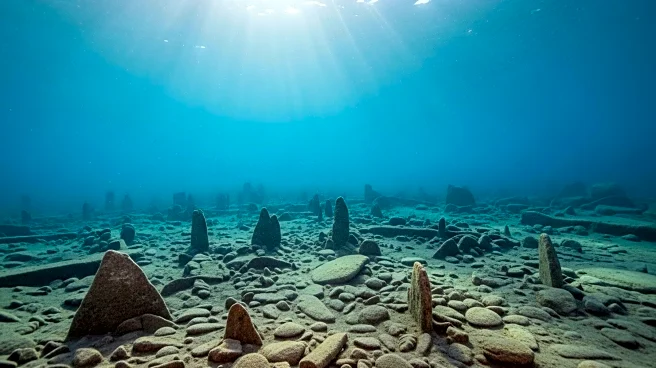What's Happening?
Archaeologists have uncovered a Stone Age settlement submerged by rising sea levels in the Bay of Aarhus, Denmark. This discovery is part of a $15.5 million international project funded by the European Union to map submerged landscapes in the Baltic and North Seas. The site, dating back over 8,500 years, has yielded artifacts such as animal bones, stone tools, and a seal tooth. Researchers aim to understand how ancient societies adapted to rising sea levels after the last ice age, which submerged coastal settlements and forced populations inland.
Why It's Important?
This archaeological find offers valuable insights into how prehistoric communities responded to environmental changes, a topic increasingly relevant as modern societies face climate change and rising sea levels. The preservation of artifacts in an oxygen-free environment provides a 'time capsule' of ancient life, potentially informing current strategies for adapting to environmental shifts. The research underscores the importance of understanding historical climate impacts to better prepare for future challenges.









